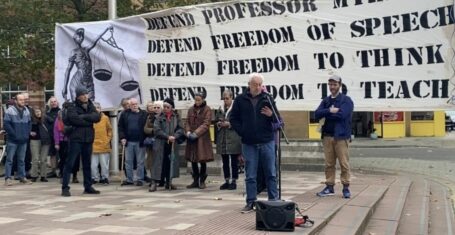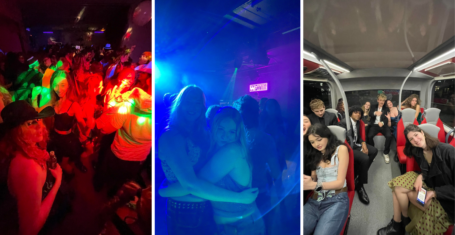
A year on since the spiking epidemic: We asked Bristol students if they believe anything has changed
‘Holding my hand over my drink is just second nature now’
It’s been over a year since a cluster of reported spiking attacks across the UK saw an outraged response from students hoping to reduce gender based violence and make a night out in Bristol safer and more inclusive.
At the heart of the response was a campaign called “Girls Night in” which organised and executed the boycott of hundreds of nightclubs across the UK, in an attempt for greater safety protocols and an increased awareness around spiking, reported particularly via injection.
We asked students their thoughts about spiking and how much of an ongoing issue they consider it to be.

Many admitted to being slightly less alert than this time last year.
Mia, a second year neuroscience student, told The Bristol Tab: “If someone is unusually drunk then I do question whether they may have been spiked, but I don’t think about it going into clubs.”
“It hasn’t crossed my mind at all this year” Lucy, another second year studying veterinary science added.

The danger of spiking, especially with a needle, certainly seems like less of an immediate threat than this time last year, which makes it easier to forget about, but not a lot has actually changed in regards to women’s safety and the prevention of sexual violence. It’s not hard to imagine that we could find ourselves in another similar situation in the future.
The spotlight was put on clubs and music venues in Bristol to respond to the outbreak as a matter of urgency and importance. We asked La Rocca, Lizard Lounge, Thekla and Gravity about what they had done in the last year to make their businesses safer for students. Each of them failed to comment on both the changes they had implemented and their stance on the general issue of spiking.

Among students there are mixed reviews over the response of local businesses.
Annabel, a second year politics and sociology student, told us: “A lot of clubs have stepped up to help with more prevention methods to make people feel safer. I think the incidents in Bristol made it real.”
V, a second year law student, thinks that the issue still isn’t being taken seriously: “Clubs gave out things to cover your drinks and there was a “girls night in” but the fact that there was no discussion that was prolonged reflects how little these institutions care. An Instagram post isn’t going to cut it.”
Although there are no plans for anymore boycotting of nightclubs, on Thursday 24th November, the “Reclaim the night” march saw hundreds take to the streets of Bristol to protest against sexual harassment and gender-based violence.
It comes after a study by Bristol SU in 2021 which found that one in two students are expected to experience sexual harassment at university.

Millie, a third year Classical Studies student told us her personal story: “I’ve been spiked twice. It’s awful how many people have this shared experience.”
The reality of being a student today is still one that involves sexual violence and spiking and not enough real change has been implemented to guarantee any level of safety on a night out. Although things might not be as bad as this time last year, and you might get the occasional lid to cover your drink in the club, this is your reminder to stay vigilant and look out for your mates the next time you go on a night out. Spiking is not something we should be forgetting about any time soon.
Helpful resources:
Drinkaware’s guide so you know what to do if you think you or someone else has been spiked
How to identify and where to report sexual violence
Related stories recommended by this writer:
• Seven affordable activities in Bristol which you have to do this Christmas
• Why limit happy to an hour: Best affordable cocktail bars in Bristol









































